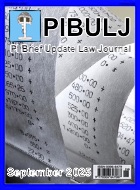Editorial: Opoku v Tintas: Court of Appeal on Period of Hire - Aidan Ellis, Temple Garden Chambers

22/07/13. Challenging the period of hire in a credit hire case has always been a difficult issue for Insurers. In many credit hire cases it is the period of hire more than the daily rate that Insurers instinctively want to challenge, whether because the repairs take far longer than the estimate or because a long period of hire means that the charges become disproportionate to the pre-accident value of the vehicle. But the Court of Appeal decision in Clark v Ardington [2003] QB 36 has always presented a major obstacle, requiring in accordance with Mattocks v Mann (1973) RTR 13 the Defendant to prove that there was “some conduct on [the Claimant’s] part or on the part of someone for whom she is in law responsible, or indeed of a third party, which can truly be said to be an independent cause of loss of use of her car”. The difficulty in proving the existence of an independent cause of loss of use of the damaged vehicle means that the instinctive challenge to the period of hire is often lost.
In Opoku v Tintas (July 2013), however, the Court of Appeal delivered what is likely to be a significant decision relating to the period of hire in a credit hire case. A transcript of this ex tempore judgment is awaited, but from the information available it appears that this was a case where the Claimant, who was found to be impecunious, continued hiring a replacement vehicle for approximately two years rather than paying for repairs in the sum of £3,400. The Court of Appeal upheld the trial judge’s finding that there came a point, identified as after the Defendant had inspected the vehicle, when it was unreasonable for the Claimant not to effect repairs.
Although fuller analysis will have to wait for the transcript, the case is likely to be significant in relation to long periods of hire. In particular, it is interesting that although the Claimant was found to be impecunious in relation to his ability to pay the hire charges, this did not prevent the Judge from finding that he would have been able to find the money to pay for repairs (at least after some time had passed). The relationship between having the money to pay for hire charges and having the money to pay for repairs is not straightforward, and it is interesting that the Court of Appeal saw no inconsistency in the above finding. The decision may also suggest that the mounting hire charges are a factor that Claimants should take into account in deciding whether to carry on hiring. Defendants are therefore likely to be able to rely on this decision in many similar cases to challenge extended periods of hire, in circumstances where they have not made an interim payment to allow repairs to succeed.
Aidan Ellis
Image ©iStockphoto.com/energyy












![Appeal judge rules that credit hire company has no costs liability following a finding of fundamental dishonesty in personal injury case: RSA v. Fastrack Solutions Limited [2023] 4 WLUK 92 - David Bowden, Erimus Chambers](/content/images/resized/images/stories/carkeys_72_72.jpg)


